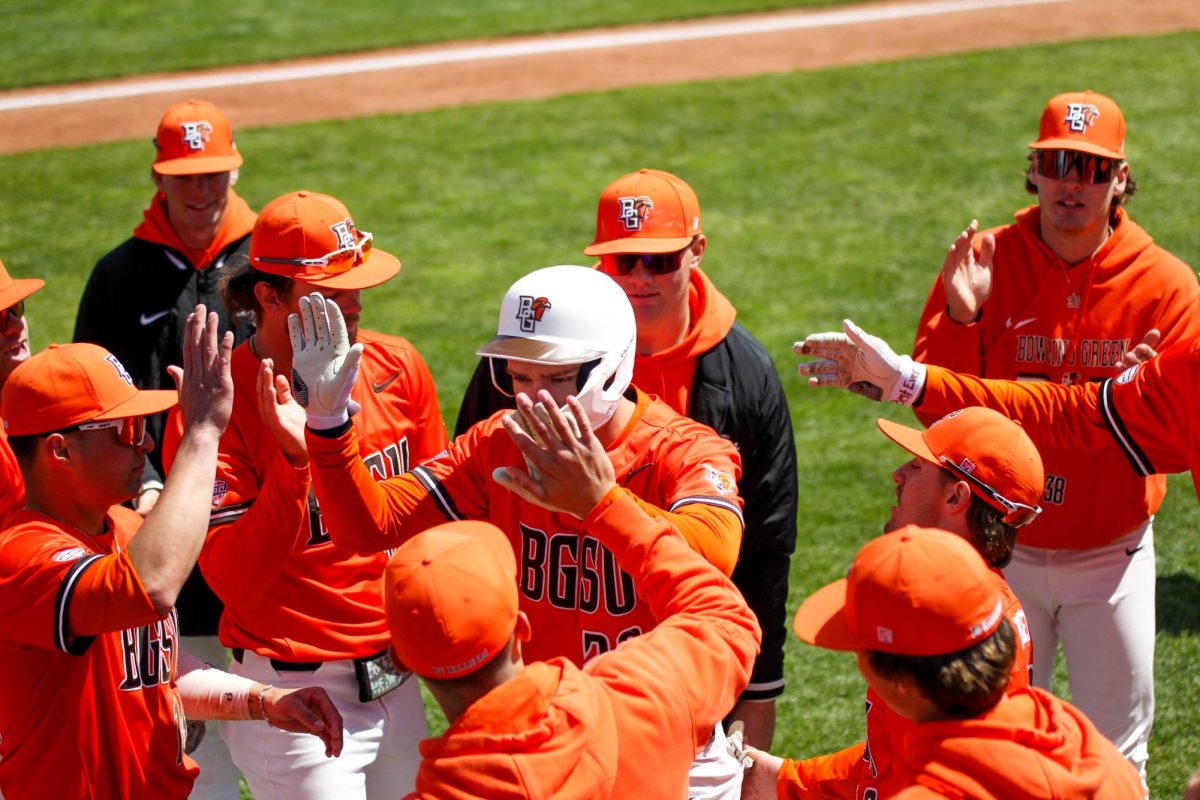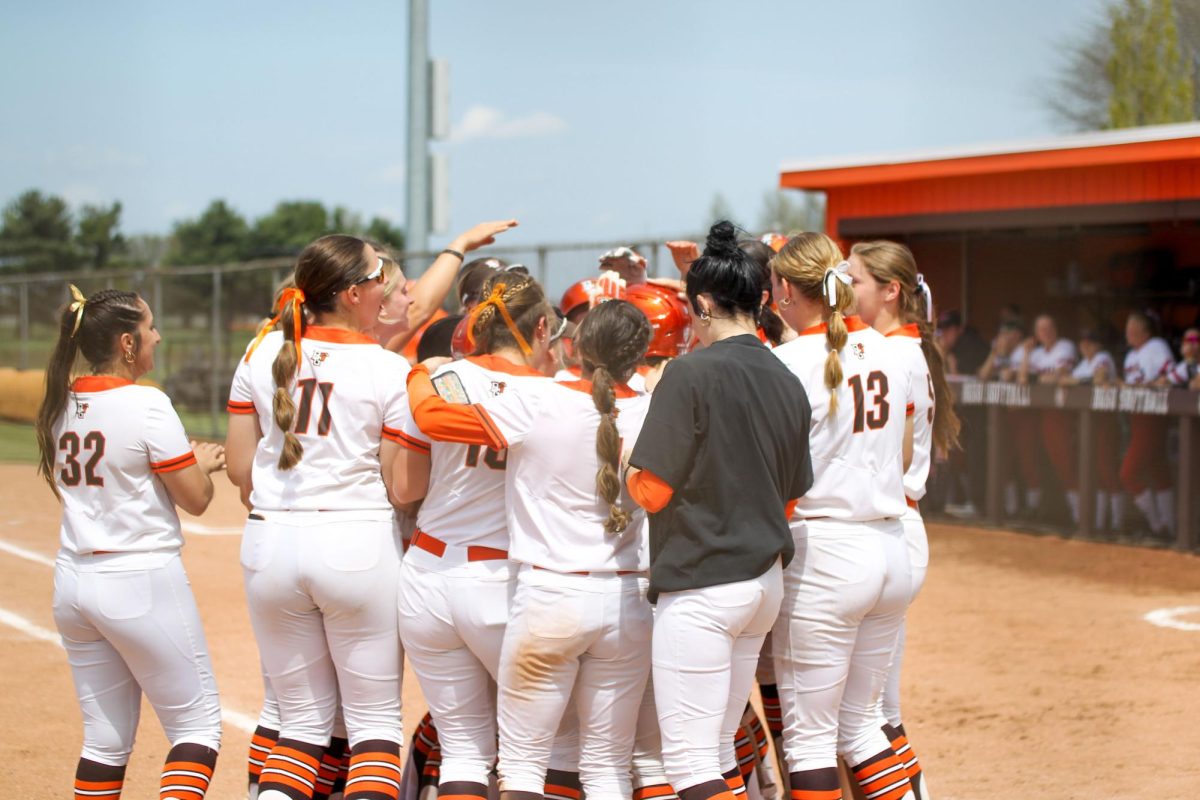Creating quizzes and commenting on course papers are not the only times professors sit down to write.
Several of Bowling Green’s professors have written the textbooks used in some of their classes.
The first time Leigh Ann Wheeler, an associate professor in the history department, went to write a book, she wrote more of a monograph than a textbook. A monograph is a study written on a particular subject.
She wrote it because she cares deeply about the issues, and not just the issues in the book, she said.
“College professors should be people who aren’t just disseminating knowledge,” Wheeler said. “[Writing] keeps my brain alive, keeps me good as a teacher,” she said.
She added that people don’t come to college to be educated by professors with stagnant minds.
The first book started out as a fulfillment to her tenure requirement as a member of the history department.
“There was this threat hanging over my head,” she said.
But while she got a lot of input and feedback from colleagues outside the University, Wheeler had to wait until her second book for encouragement from the school itself.
“They don’t need to encourage you, they can threaten you,” she said.
Julie Barnes and Laura Leventhal, professors of computer science, found themselves in a similar situation when a textbook for their course became outdated and there was no other book to replace it. In the end, they took on the project.
“It’s a lot of work,” Barnes said. “If another one existed, this one wouldn’t.”
The only time off either received was Leventhal’s faculty improvement leave, where she wrote the first draft.
“It was sort of the two of us encouraging each other,” Barnes said, “because we knew we needed another textbook relevant to the course we were teaching.”
As they wrote different chapters, they distributed the drafts in class.
“When we had a draft of it we would hand it out to the class and ask what was clear and what was not,” Barnes said.
Psychology professor Kenneth Pargament has been through the process twice. Neither of his books are technically considered textbooks, but they are used in classrooms.
“Studies had been done in an area, but nobody did all the research,” he said. “[Writing a book] was a way to lend some order to all the research.”
The advantage of writing a book, he said, was getting a clearer perspective on a topic. The first book was more about research and theory, while the second book, “Spiritually Integrated Psychotherapy,” was about putting it into practice.
“Academics focus on narrow-topic papers,” he said. “Writing a book allows for a broader field.”
Scott Magelssen, an assistant professor in theater and film, said his book, “Living History Museums,” was also more of a monograph.
He doesn’t generally use textbooks in his performance studies class, but said he feels his book offers a different perspective than others out there.
“It was a particular topic of interest for me,” he said.
The book started out as a dissertation topic when Magelssen was a graduate student.
“My thinking on the subject kept going,” he said, and a book was the next stage.
Six years later, working off and on, a book was produced. This one was his first book, though he has others waiting in different stages of writing.
“This one just so happened to coincide with the course I’m teaching,” he said.
Christopher Mruk, a natural and social sciences professor at Firelands, also had a long-standing professional interest that resulted in a book.
His book, “Self-Esteem, Research, Theory, and Practice,” is not a textbook either, but a primary source, and he felt it is important to stress the difference between the two.
While a textbook consists of many different works in one volume, a primary source is just one work.
Though Mruk uses his book in class, he recommends that students not buy it.
Scholarly books are often expensive, and Mruk said he feels that too many professors abuse the power of requiring their own books be bought.
“There are ethical issues in professors assigning their own books,” he said. “I never require students purchase them so I can have a nice retirement.”
During the time it took to write his books, Mruk found the University to be supportive.
“They call it ‘one university, two campuses,’ and both were extremely helpful,” he said.
“You want to share what you know with others,” he said. “Books and articles are the way to do that.”

















